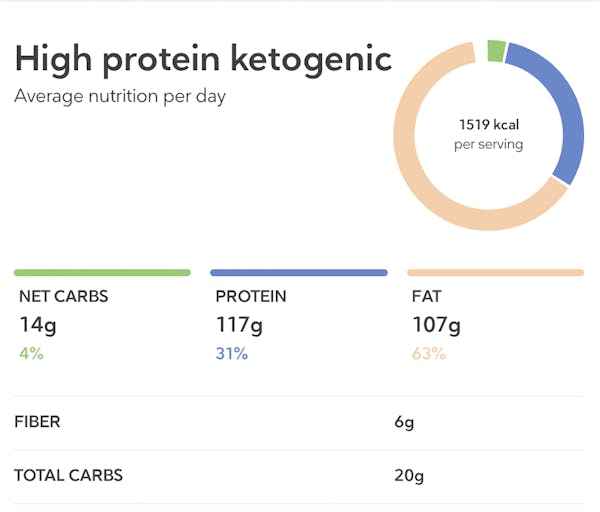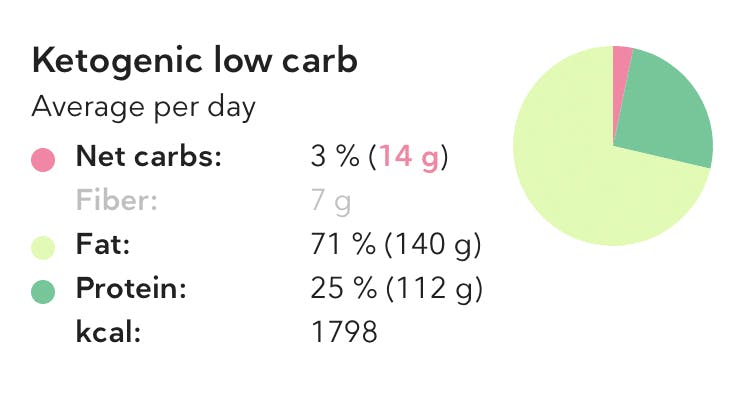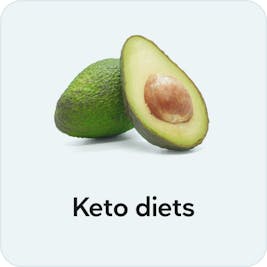7-day diabetes meal plan




If you are looking for the most effective diet for controlling your blood sugar, you have come to the right place. We based our diabetes meal plan on scientific evidence that a very low carb or keto diet is highly effective at lowering blood sugar for individuals with diabetes.
But don’t start on our diabetes meal plan yet. Eating a very low carb diet has the risk of being too effective — meaning it can lower your blood sugar too much and put you at risk for severe complications from hypoglycemia (low blood sugar). The risk of low blood sugar is important if you are taking medications for diabetes.
Therefore, we recommend you consult your healthcare provider before starting a very low carb diet. You will likely need to alter your medications before starting this meal plan.
Similarly, eating a very low carbohydrate diet can lower your blood pressure. So if you are on blood pressure medication, your provider may need to adjust your dosage to prevent your blood pressure from decreasing too much which may cause you to feel dizzy or even lose consciousness.
Here is an educational guide to help you better understand the specifics, and here is one you can share with your healthcare provider.
Once you and your provider have reviewed the safety information and developed a plan for adjusting your medications, you are ready to start with our diabetes meal plan!




Key takeaways
How to start ketoWe plan your meals, provide recipes, and make the shopping list. You just shop, cook, and enjoy great results!
Here’s how to get started Full 14-day meal plan
Enjoy our most popular keto recipes for two weeks.
Have a look at the menu Shopping list
With our handy shopping list feature, you can select your desired number of servings or swap meals.
Try it out
Get started
A diabetes diagnosis can be unsettling and confusing. There is so much conflicting information on what to eat and what to avoid out there! As you, or a loved one, learn to navigate this condition, we are here to help guide you through one of the trickiest parts — nutrition.
If you are new to keto, make sure to read the advice below before starting a keto diet plan.
What can you eat to help manage diabetes?
The key to eating to manage diabetes is to choose foods that don’t spike your blood sugar level; low carb foods are a prime example. These food groups include proteins, natural fats, full-fat dairy products, and most vegetables, as well as some berries, nuts, and seeds. Let’s take a closer look.Diabetes plan basics
With this meal plan for diabetes, your meals contain less than 20 grams of net carbs (total carbs minus fiber) per day. A diet which provides under 20 grams of net carbs per day is considered a very low carb, ketogenic (keto) diet.
This meal plan is also high in protein, providing an average of 120 grams per day to meet your needs and help you feel satisfied.
Following a meal plan can help simplify your health journey, help you manage your blood sugar, and set you up for success.
Simplify keto tips
-
- Breakfast: Choose one keto breakfast to eat every day, like scrambled eggs.3Not hungry? Skip breakfast and sip a coffee instead.4 This saves time and money.
- Prep your meals: Cook at least two servings for dinner, eat one — and refrigerate the other — for tomorrow’s lunch. Freeze other portions for later. Full meal prep guide.
- Try no-cook plates: Sliced deli meats, cheeses, and veggies make an easy lunch. Here are many more.
No problem!

Risks
Following a keto diet appears to be safe for most people.5
However, before starting a keto diet plan, make sure to check with your doctor if you take medication for diabetes or high blood pressure. If you’re breastfeeding, you should not follow a keto diet.
Start fresh
Use our kitchen clean-out list to help you make sure your kitchen is keto-friendly before starting your keto diet plan. This can dramatically increase your chances of success.
Avoid keto flu
Drink lots of fluids and get enough salt, especially during the first week of the meal plan, to minimize symptoms of the initial “keto flu.”6 For example, a cup of bouillon daily and salting your food ‘to taste’ really helps.7 Full guide
Disclaimer: While the ketogenic diet has many proven health benefits (e.g. weight loss, reversal of type 2 diabetes) it’s still controversial. Most importantly, there may be a need to adapt pre-existing medications (see above). Discuss any changes in medication and relevant lifestyle changes with your doctor. Full disclaimer This diet plan is for adults with health issues, including obesity, that could benefit from a keto diet.
7-day diabetes meal plan




Enjoy seven days of delicious high protein, low carb recipes to help you manage your diabetes. You won’t even need to count the carbs because we’ve done the groundwork for you! Look forward to a variety of keto dishes that provide less than 20 grams of net carbs per day.
Feast on some of our all-time most popular keto recipes. How do Egg bites with turkey bacon, Keto crack chicken, and Smash burgers with green beans sound? Delicious? We thought so, too!
Note: If you don’t like certain recipes or don’t have the ingredients on hand, you can always replace them with recipes that better suit your preferences.




Monday
Tuesday
Wednesday
Breakfast
Dinner
Thursday
Friday
Saturday
Sunday
Breakfast

Shopping lists and more
With shopping lists, your trip to the grocery store doesn’t have to be time-consuming or frustrating. Get all the healthy keto foods you need for the following week — and spend less time at the supermarket every month.
Access your shopping list on any device. Using a digital shopping tool can be even more beneficial than old-school pen and paper. You can access your shopping list straight from your smartphone, print it out, or even share it with family and friends when you don’t have the time for grocery shopping yourself.
Do you want to get weekly shopping lists for the menu above?
When you become a Diet Doctor Plus member, you get premium access to the delicious 7-day menu above. Just press play and get started with simple recipes and shopping lists. You can also customize your own by answering a few questions. Take the 1-minute quizHow to create your own keto meal plan for diabetes
Can you design your own diabetes meal plan that suits your unique preferences and lifestyle? Absolutely! Just keep the net carbs under 20 grams per day.
Once you’ve created your plan, you won’t have to spend time figuring out what to eat every day. Plus, you may be more likely to achieve your weight loss and health goals by planning keto meals in advance.
Find out more about which foods to include, and which ones to avoid, when you create your own meal plan.

Find additional information on what to eat and what to avoid with diabetes here. Get instant access to healthy low carb and keto meal plans, fast and easy recipes, weight loss advice from medical experts, and so much more. A healthier life starts now with your free trial!
FAQs about food choices with diabetes




What are the best food choices for people with diabetes?
There are many delicious foods that you can and should enjoy on a low carb diabetes diet. The main categories of food are animal protein, full-fat dairy products, natural fats, non-starchy vegetables, and limited amounts of berries, nuts, and seeds.
Here’s a detailed list of the best foods to eat, and meal suggestions to take you from breakfast to dinner, including treats for special occasions.
Which foods are best to avoid if you have diabetes?
Try to avoid the following foods to prevent blood sugar elevations:
What are the building blocks of a good meal for diabetes?
There are three simple steps to planning a meal to keep your blood sugar in a healthy range. Start with adequate protein, include minimally processed fats, and keep your carbs low and consistent across meals. Find more information on the ideal meal for diabetes here.
Start your FREE 30-day trial!
7-day diabetes meal plan - the evidence
This guide is written by Dr. Andreas Eenfeldt, MD, Franziska Spritzler, RD and was last updated on June 19, 2025. It was medically reviewed by Dr. Bret Scher, MD on February 11, 2022.
The guide contains scientific references. You can find these in the notes throughout the text, and click the links to read the peer-reviewed scientific papers. When appropriate we include a grading of the strength of the evidence, with a link to our policy on this. Our evidence-based guides are updated at least once per year to reflect and reference the latest science on the topic.
All our evidence-based health guides are written or reviewed by medical doctors who are experts on the topic. To stay unbiased we show no ads, sell no physical products, and take no money from the industry. We're fully funded by the people, via an optional membership. Most information at Diet Doctor is free forever.
Read more about our policies and work with evidence-based guides, nutritional controversies, our editorial team, and our medical review board.
Should you find any inaccuracy in this guide, please email andreas@dietdoctor.com.
Do you worry about eating saturated fats or cholesterol? There’s no good reason to do so. While still a bit controversial, repeated modern systematic reviews find no benefit from avoiding saturated fats, or replacing them with unsaturated fats:
- Open Heart 2016: Evidence from randomised controlled trials does not support current dietary fat guidelines: a systematic review and meta-analysis [strong evidence]
- Nutrition Journal 2017: The effect of replacing saturated fat with mostly n-6 polyunsaturated fat on coronary heart disease: a meta-analysis of randomised controlled trials [strong evidence]
Here’s a study investigating if eating eggs for breakfast every day has any negative effects on cholesterol levels. They found none, but the egg-eating group reported greater satiety:
- American Journal of Clinical Nutrition 2015: The effect of a high-egg diet on cardiovascular risk factors in people with type 2 diabetes: the Diabetes and Egg (DIABEGG) study-a 3-mo randomized controlled trial [moderate evidence]
It’s often claimed that eating breakfast is good for weight control. That appears to be false:
- British Medical Journal 2019: Effect of breakfast on weight and energy intake: systematic review and meta-analysis of randomised controlled trials [strong evidence]
- The American Journal of Clinical Nutrition 2009: The effectiveness of breakfast recommendations on weight loss: a randomized controlled trial [moderate evidence]
Furthermore, reduced hunger is common on a keto diet, so many people find it easy to skip one meal:
- Obesity Reviews 2014: Do ketogenic diets really suppress appetite? A systematic review and meta-analysis [strong evidence]
Read more in our guide to time-restricted eating. ↩
Do you worry about eating saturated fats or cholesterol? There’s no good reason to do so. While still a bit controversial, repeated modern systematic reviews find no benefit from avoiding saturated fats, or replacing them with unsaturated fats:
- Open Heart 2016: Evidence from randomised controlled trials does not support current dietary fat guidelines: a systematic review and meta-analysis [strong evidence]
- Nutrition Journal 2017: The effect of replacing saturated fat with mostly n-6 polyunsaturated fat on coronary heart disease: a meta-analysis of randomised controlled trials [strong evidence]
Here’s a study investigating if eating eggs for breakfast every day has any negative effects on cholesterol levels. They found none, but the egg-eating group reported greater satiety:
- American Journal of Clinical Nutrition 2015: The effect of a high-egg diet on cardiovascular risk factors in people with type 2 diabetes: the Diabetes and Egg (DIABEGG) study-a 3-mo randomized controlled trial [moderate evidence]
It’s often claimed that eating breakfast is good for weight control. That appears to be false:
- British Medical Journal 2019: Effect of breakfast on weight and energy intake: systematic review and meta-analysis of randomised controlled trials [strong evidence]
- The American Journal of Clinical Nutrition 2009: The effectiveness of breakfast recommendations on weight loss: a randomized controlled trial [moderate evidence]
Furthermore, reduced hunger is common on a keto diet, so many people find it easy to skip one meal:
- Obesity Reviews 2014: Do ketogenic diets really suppress appetite? A systematic review and meta-analysis [strong evidence]
Read more in our guide to time-restricted eating. ↩
The main fear about lower-carb and higher-fat diets has always been a concern about the potential increase in the risk of heart disease. However, interventional studies so far indicate that if anything the risk appears to decrease:
- British Journal of Nutrition 2016: Effects of low carbohydrate diets v. low fat diets on body weight and cardiovascular risk factors: a meta-analysis of randomised controlled trials. [strong evidence for improved risk factors]
- PLOS ONE 2015: Dietary intervention for overweight and obese adults: comparison of low carbohydrate and low fat diets. A meta-analysis. [strong evidence for improved risk factors]
- Obesity reviews 2012: Systematic review and meta‐analysis of clinical trials of the effects of low carbohydrate diets on cardiovascular risk factors [strong evidence for improved risk factors]
- Circulation 2010: Dietary intervention to reverse carotid atherosclerosis [moderate evidence for a reduction in atherosclerosis]
For more health controversies regarding a keto diet, have a look at this page:
The “keto flu” is a set of common early side effects like headache, feeling tired, nausea, lack of concentration, brain fog, etc. Learn more
Nutrition X 2019: Effects of differing levels of carbohydrate restriction on mood achievement of nutritional ketosis, and symptoms of carbohydrate withdrawal in healthy adults: A randomized clinical trial [randomized trial; moderate evidence]
↩This is mainly based on the consistent experience of experienced clinicians [weak evidence]. But there’s also some support from this study that found only minor increases in side effects, while advising participants to drink bouillon:
Nutrition & Metabolism 2008: The effect of a low carbohydrate, ketogenic diet versus a low-glycemic index diet on glycemic control in type 2 diabetes mellitus [moderate evidence] ↩




















